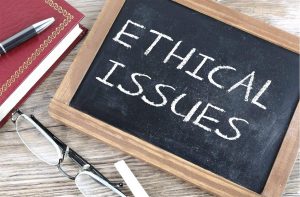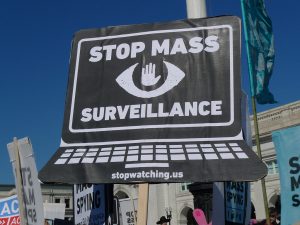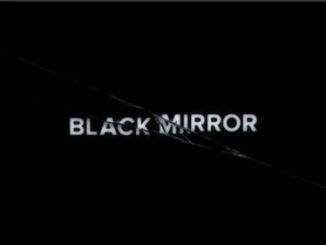
SID: 500006797 | Name: Zhou yipeng (Elsa) | CLASS:08 | TUTOR: Dr. Ayesha Hasan

-
Introduction
“Black Mirror” is a science fiction miniseries that was created by Charlie Brooker and launched in 2011 and has been running for five seasons, with each episode being 45 minutes in length to tell a separate storyline (Duarte et al., 2021). Black Mirror shows the exploitation, reconstruction, and destruction of human nature by contemporary technology, putting a satirical and dark spin on technological development, exposing social realities and human weaknesses, and inviting its audience to reflect on the development of society and technology. The reshaping and alienation of technology in the play are highly realistic, critical, and satirical. In fact, it is also a metaphor and a cautionary tale for the rapidly developing future of technology. The focus of this paper is how Black Mirror pre-tunes fears about the impact of technology around issues of censorship, social media, and surveillance (Sculos, 2017). The paper consists of three parts, by discussing three different episodes that bring inspiration and caution. Firstly, technological innovations and applications contradict basic human morality. Second, the lack of authenticity is caused by the excessive pursuit of public approval in the age of social media. Third, the deprivation of people’s privacy by network surveillance and traceability.
-
Moral and ethical issues arising from technological innovation
Striking Vipers Ending Explained | Black Mirror Season 5 | Netflix | The Rewired Soul (Source: https://youtu.be/zXscpcTpQ04 )
“Men Against Fire” is the fifth episode of the third series of Black Mirror starring Malachi Kirby, Madeline Brewer, Ariane Labed, Sarah Snook, and Michael Kelly. It was premiered on Netflix on 21 October 2016.
“Black Mirror” presents the new world created by the development of technology: contact lenses with memory storage and shielding function, artificial intelligence technology with super simulation effect, technology that can separate the body from the consciousness (Duarte et al., 2021). “Black Mirror” depicts the moral and ethical problems associated with the combination of technology and the human body in the future.
Numerous episodes of Black Mirror “predict” that humans and technology will become inseparable, even physically integrated. In ” Men Against Fire “, for instance, the brains of soldiers are implanted with microchips just so they can’t hear the screams of their enemies, or see the blood of their enemies, yet they would be rewarded with a chip that simulates a “sexual experience” for successfully completing a mission. If receiving combat information in real-time during combat is an enhancement of technology, then the ability to disrupt hearing and vision and virtually satisfy human desire through the system allows technology to take over the human body, and humans gradually lose the ability to think for themselves and become dominated and imprisoned by high-tech chips. The director and editors of “Black Mirror” have made the ultimate “prophecy” based on this situation: as technology develops, the boundary between technology and the human body will gradually blur, merging technology into the human body (Duarte et al., 2021). When the smart terminal becomes the most important prosthetic for human beings, while the technology penetrates directly into the human mind, excessive reliance on technology will magnify human weaknesses, eventually, human beings will be enslaved by technology and lose the autonomy of their bodies.

The episodes of Black Mirror serve as a reminder that with the rapid advancement of modern technology, modern scientific breakthroughs, and technological advances are not only revolutionary in the scope of subject areas, but even moral awareness and ethical awakening are crucial (Duarte et al., 2021). In the face of the enormous benefits of new technologies, people should consciously base themselves on reason and abide by the basic moral codes of humanity.
-
The lack of authenticity in the age of social media and the excessive pursuit of public approval.
Black Mirror | Nosedive Featurette [HD] | Netflix (Source: https://youtu.be/R32qWdOWrTo)

“Nosedive” is the first episode of the third season. It was written by Charlie Brooker, Michael Schur, and Rashida Jones, and was released on October 21, 2016.
“Nosedive” describes a society in which the public will live in a world of media ratings. People’s actions and behavior will be rated and the higher the score, the greater the social privilege or respect they will have. In what appears to be a society where everything is wonderful, people use this new media to share photos of their lives with each other or interact with people around them in a friendly, real-time manner to improve their ratings.
The episode is all about social interaction, ironically in this episode, everyone is looking down at their electronic devices rather than at each other. Social interaction also becomes more about self than about others to maintain a high social score and likes. The story implies a great deal of metaphor that with the advancement of technology and the widespread use of social media platforms, where the assessment of relationships is quantified by social media as a label sufficient to show one’s status, then society will lack authenticity (Gilbert, 2021).

In ‘Nosedive’, this insane obsession with social media seems to be an exaggerated version of the current society’s perception of one. For example, on Facebook, Instagram, people share their daily activities and then their followers decide to like or dislike them. In fact, the number of followers can often be a measure of one’s influence, which can also lead to practical benefits, such as cashing in on the money by endorsing branded products (Gilbert, 2021). Not only that, but some people will do anything to become famous or attract traffic: creating hype, selling scandal, creating public debate, and so on. Furthermore, if technology ever allowed such evaluations to be quantified and displayed, everyone would be living in a false mask, enslaved to their scores(Gilbert, 2021). A utopian and harmonious society may appear on the surface, but underneath the mask, the evil of human nature will be revealed in unseen places.
-
The deprivation of people’s privacy through online surveillance and traceability
Black Mirror: Crocodile | Official Trailer | Netflix PK (Source: https://youtu.be/R32qWdOWrT )
“Crocodile” is the third episode of the fourth season of “Black Mirror”, the Director is John Hillcoat. The air date was December 29, 2017.
It is an episode about a murder case. An insurance agent uses a device that can read people’s memories, thoughts, and actions to investigate a minor traffic accident, but one of the witnesses has committed a series of murders and wants to be hidden.
The episode “Crocodile” emphasizes the themes of cyber-surveillance and traceability. Current online technology is already being used to track people’s behavior online (Tim, 2021). For example, a huge amount of data collected on a smartphone or computer, and browser history can be traced back to the person, all of which can be used by the police to solve cases or by wrongdoers to commit crimes (Dinev et al., 2008). In the era of big data, surveillance and traceability have caused a great deal of controversy. In China, for example, most of the masses believe that this way of surveillance of the public may be positive, as it is a means of safeguarding society and they do not have anything to hide (de Kloet et al., 2019). Even so, internet users are deeply fearful of the traceability and invasion of privacy that big data can bring.

In the case of Snapchat, even though social media Snapchat claims to be a software that sells itself as “Burn After Reading”, what is undeniable is that digital space has a memory that includes traces of people’s past activities (Englehardt et al., 2018). A clear example of these traces is that Snapchat pushes photos that have been sent on important anniversaries each year, even if three or five years have passed. While this is not a terrible thing, it is a different story when these traces are easily accessible or misused by others. In 2018, Facebook had breaking news that it collected a large amount of data on American users without their knowledge to promote political agendas as well as political propaganda (Englehardt et al., 2018). Many users’ online habits were tracked and used to reinforce their political views.
At the heart of the debate on the future of internet privacy is the phenomenon described as a privacy dilemma as many people’s reliance on digital media seems to outweigh concerns about invasion of privacy (Sengupta, 2013).
-
In the end…

“Black Mirror” discusses the imagined possibilities of future utopias through different episodes, and the series tries to trigger a forewarning of these impending problems. The episodes stretch out from their real-world foundations, giving the viewer insight into how closely this issue resembles what is happening in society today. Black Mirror’s story about technology is very depressing and the ending of the story is mostly left open to the viewer’s imagination, yet many of the details in the story are very gruesome. The transformation and alienation of mankind by science and technology reflects the negative effects of contemporary media and it serves as a warning for the future information age. In fact, the information content of the play is far more complex than what is shown in the plot. What humans should fear most is not the innovative technology, but how to use it properly driven by human nature.
-
Reference list
-
- De Kloet, J., Poell, T., Guohua, Z., & Yiu Fai, C. (2019). The platformization of Chinese Society: infrastructure, governance, and practice. Chinese Journal Of Communication, 12(3), 249-256. https://doi.org/10.1080/17544750.2019.1644008
- Dinev, T., Hart, P., & Mullen, M. (2008). Internet privacy concerns and beliefs about government surveillance – An empirical investigation. The Journal Of Strategic Information Systems, 17(3), 214-233. https://doi.org/10.1016/j.jsis.2007.09.002
- Duarte, G. & Battin, J. (2021). Reading »Black Mirror«: Insights into Technology and the Post-Media Condition. Bielefeld: transcript Verlag. https://doi-org.ezproxy.library.sydney.edu.au/10.14361/9783839452325
- Englehardt, S., Han, J., & Narayanan, A. (2018). I never signed up for this! Privacy implications of email tracking. Proceedings On Privacy Enhancing Technologies, 2018(1), 109-126. https://doi.org/10.1515/popets-2018-0006
- Gilbert, S. (2021). ‘Black Mirror’ Is Back: ‘Nosedive’ Is a Sharp Satire About Social Media. The Atlantic. Retrieved 15 October 2021, from https://www.theatlantic.com/entertainment/archive/2016/10/black-mirror-nosedive-review-season-three-netflix/504668/.
- Sculos, B. (2017). Screen Savior: How Black Mirror Reflects the Present More than the Future. Class Race Corporate Power, 5(1). https://doi.org/10.25148/crcp.5.1.001673
- Sengupta, Somini. “Privacy Fears Grow as Cities Increase Surveillance.” The New York Times, The New York Times, 14 Oct. 2013, nytimes.com/2013/10/14/technology/privacy-fears-as-surveillance-grows-in- cities.html
- Tim, B. (2021). 30 years on, what’s next #ForTheWeb?. World Wide Web Foundation. Retrieved 11 September 2021, from https://webfoundation.org/2019/03/web-birthday-30/

This work is licensed under a Creative Commons Attribution-NonCommercial-NoDerivatives 4.0 International License.



